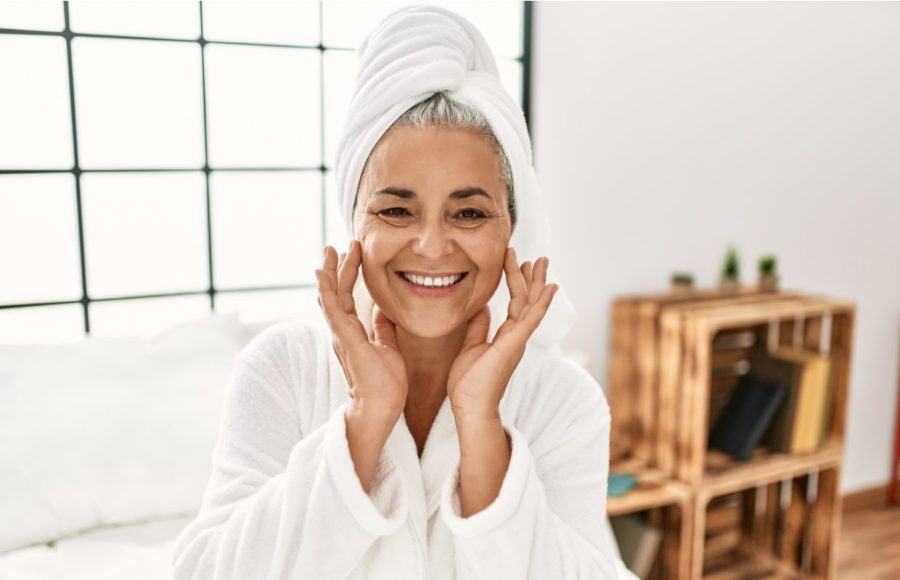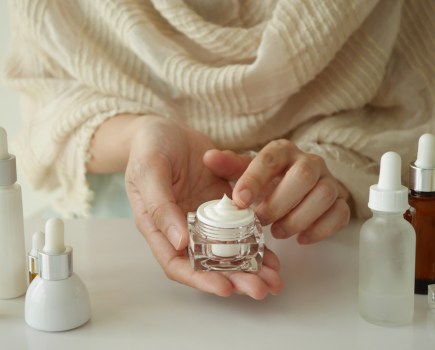From the difference between squalene and squalane to the best way to treat rosacea and adult acne, we caught up with the skincare and beauty experts to answer your questions…
What is the difference between squalane and squalene and should I be looking out for these ingredients in my eye cream?
‘The key difference between squalane and squalene is that one is naturally found in our skin sebum, and the other is a hydrogenated form added to skincare products. Squalene is one of the natural moisturising ingredients found in the sebum – that’s the oil content found in the skin. It’s helpful for moisturising the skin and fortifying its barrier function. However, if you try to add it into a skincare ingredient, it would become oxidised and virtually useless.
‘Instead, we have squalane – a hydrogenated form that stabilises the molecule, but it still has lovely hydrating benefits that are similar to the natural oils found in the skin and it’s also great for dry, tired eyes. You’ll find it in the Biossance Squalane Marine Algae Eye Cream (£46). I’ve been using it for months now and it’s great. You only need a touch, applied underneath and just above the eye for a real pop of hydration.’ – Dr Ifeoma Ejikeme, founder of Adonia Medical Clinic.
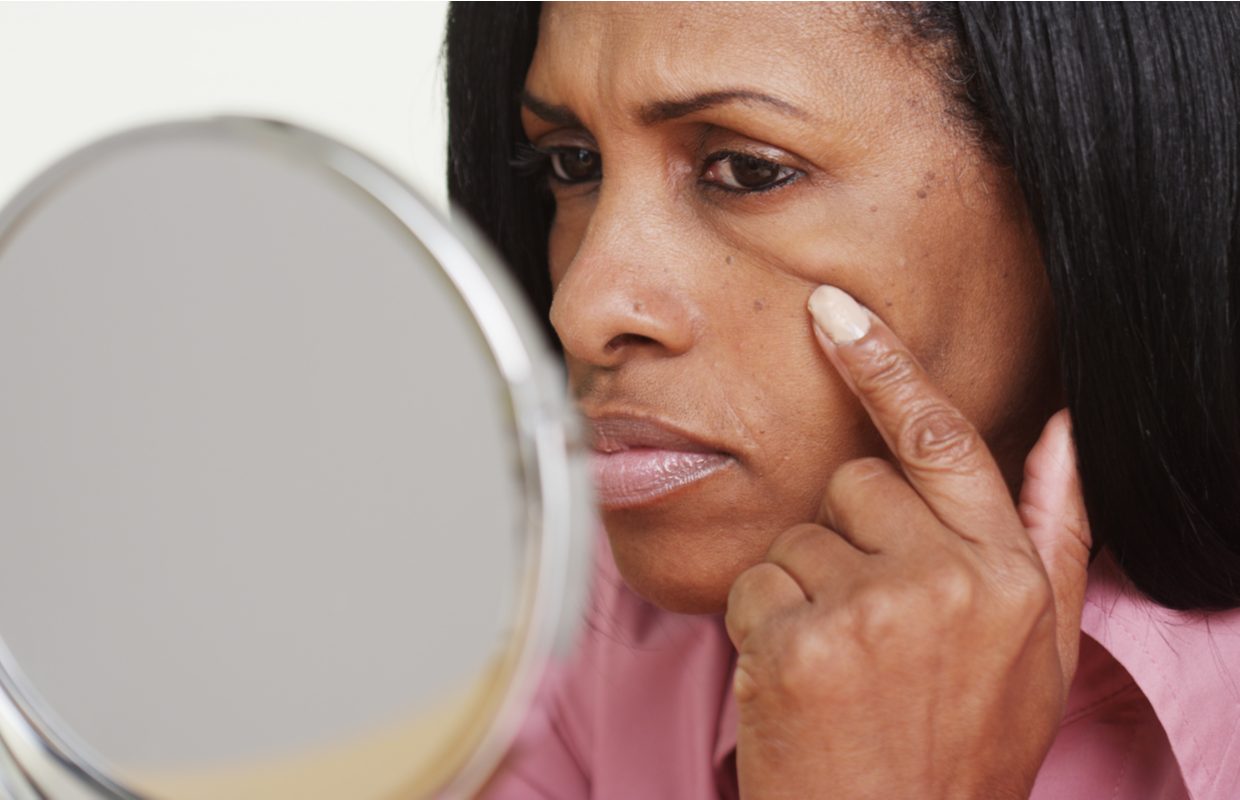
‘Between the change in temperature and artificial heat, my skin has become much drier and tighter. How can I combat this?’
‘The function of the skin is to act as a barrier. The lipid bilayer is affected by temperature, pH and the elements, which can draw moisture out from the skin. Irritation can occur where the barrier function is impaired either due to the wrong products being used, dermatitis of any cause, or the elements. Winter is a good time to check in to see if the products you were using in the summer still serve you and your skin. For most people, reviewing your moisturiser is key. If you usually use a light lotion in the summer, then a cream moisturiser may be better in the winter.
‘A good moisturiser should include hyaluronic acid, aloe and glycerine. These are humectants that pull moisture into the skin. Other ingredients such as ceramides will then help to lock in that moisture. If you have dry skin, look to buy products containing occlusives such as shea and cocoa butter.
‘Moisturise the face morning and evening and the body once a day. And SPF is super important, even in winter. This is because UVA affects skin all year round, come rain or shine. In fact, UVA rays penetrate deep into the dermis, the skin’s thickest layer and can affect the skin so much so that it can lead to DNA damage. That’s why I highly recommend people use SPF 30 or above all year round.’ – Dr Ifeoma Ejikeme, founder of Adonia Medical Clinic.
‘I’ve had rosacea on and off for years, but recently the symptoms have become really bad. What’s the best way to treat it?’
‘Rosacea is a chronic facial dermatitis and can evolve in flares. There are two main components to understand in rosacea: with the vascular component, patients often experience flushing and blushing, facial redness and persistent broken vessels on the skin (sometimes known as spider veins). Triggers should be avoided and this usually includes sun exposure, changes of temperature, spicy food, caffeine and exercise.
‘Brimonidine gel can help reduce the facial redness by temporarily constricting the blood vessels. It has a very quick action and has to be applied thinly and evenly to the face every morning. However, some patients describe paradoxical reactions with increased redness and burning sensations. Vascular laser or intense pulse light are very effective at getting rid of broken vessels on the skin. For those with the inflammatory component, with red spots and pustules, metronidazole gel is often prescribed, as well as azelaic acid.
‘Rosacea is a chronic facial dermatitis and can evolve in flares. Triggers should be avoided and this usually includes sun exposure, changes of temperature, spicy food, caffeine and exercise.’
‘Ivermectin cream can also be very effective. It is an antiparasitic treatment that helps fight demodex, which are microscopic mites that live on the hair follicles of human skin, particularly on the face and around the eyes. The mite is naturally present on the skin but can proliferate and cause inflammation and rosacea. If there is no response to topicals, then oral antibiotics are prescribed, however this should not be considered as along-term option.
‘Don’t forget that rosacea-prone skin is very sensitive, so skincare should be gentle and non-perfumed. Sun protection is also important, but make sure you choose a sunscreen that’s non-occlusive and non-greasy.’ – Dr Emma Gardette, dermatologist and skin cancer screening expert at The Medical Chambers in Kensington.
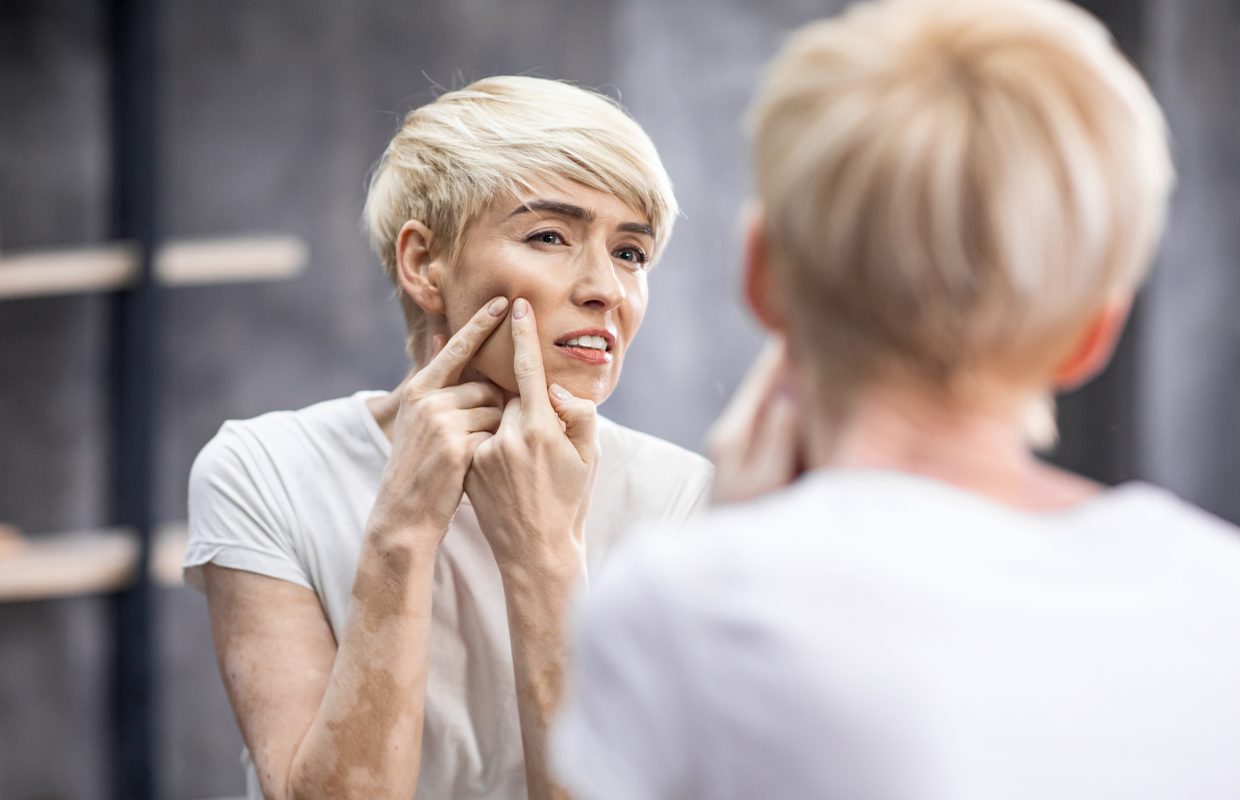
‘I’ve recently had a few severe breakouts – it’s like being a teenager again but I’m 48! What can I use to fight spots that won’t dry out my skin?’
‘Adult acne is very common. We estimate that up to 26 per cent of women will be affected by it in their 40s. Female adult acne will affect predominantly the jawline and has an increased risk of marks and pigmentation. If acne is mild, then topicals might be enough to control the disease.
‘Retinoids are usually dermatologists’ first line prescription. Benzoyl peroxide gel can also be used, but this is highly irritant. Azelaic acid is an alternative and is usually better tolerated. Topical antibiotics should no longer be used due to their high risk of antimicrobial resistance. Superficial chemical peels based on salicylic acid, glycolic acid and/or other types of AHA can help and are usually well tolerated. Alkaline soaps and toners should be avoided, as well as oil-based moisturisers.
‘Regarding make-up, non-comedogenic fluid foundation is preferable over powders. It’s important to see a dermatologist to understand your lifestyle, cosmetic routine and expectations. They might request a hormonal screen to rule out PCOS (polycystic ovary syndrome) or other endocrine conditions that can cause acne. When it comes to systemic treatment, sometimes over-the-counter zinc supplements can help. Your doctor may prescribe a three-month course of antibiotics, but this isn’t a long-term solution. If there are any perimenstrual flares or any hormonal disorder, you might need a contraceptive pill.’ – Dr Emma Gardette, dermatologist and skin cancer screening expert at The Medical Chambers in Kensington.
‘I have acne scars from when I was younger that are getting more pronounced. Is laser resurfacing a good idea?’
‘Laser resurfacing is an excellent option for acne scarring. It works by stimulating the production of new collagen fibres in the skin. There are two different types of resurfacing lasers. The ablative laser creates wounds in the skin by removing the epidermis and exposing and heating up the underlying dermis. As the skin heals and reforms, the body produces more collagen and appears smoother and tighter, though it does also induce skin swelling, redness and peeling. The healing process takes up to 2-3 weeks. There is a risk of damage to the skin with scarring and dyspigmentation, as well as risk of infections, especially with herpes.
‘The non-ablative laser doesn’t remove the epidermis and works by stimulating new collagen fibres directly in the dermis. Different types of lasers and IPL (intense pulse light) can be used. It’s a safer procedure with little recovery time, but it isn’t considered as effective as ablative lasers.
‘Laser resurfacing is an excellent option for acne scarring. It works by stimulating the production of new collagen fibres in the skin.’
‘Other options to consider to treat scars are: micro-needling, where a roller with multiple small needles is applied to the face. The resulting small wounds help the skin produce new collagen. While non-invasive and with a quick recovery time, it will be less effective than other resurfacing techniques. Dermabrasion is another resurfacing procedure that uses a rotating surgical devise to remove the top layer of the skin. The risks are similar to ablative laser.
‘Finally, you could look at medium to deep chemical peels, where different acids are applied to the skin to remove the top layer. The deeper it goes, the higher the risks of scarring are. If you are considering treating your acne scars, you should see a dermatologist who can advise on the best technique and discuss your expectations about the expected cosmetic results.’ – Dr Emma Gardette, dermatologist and skin cancer screening expert at The Medical Chambers in Kensington.
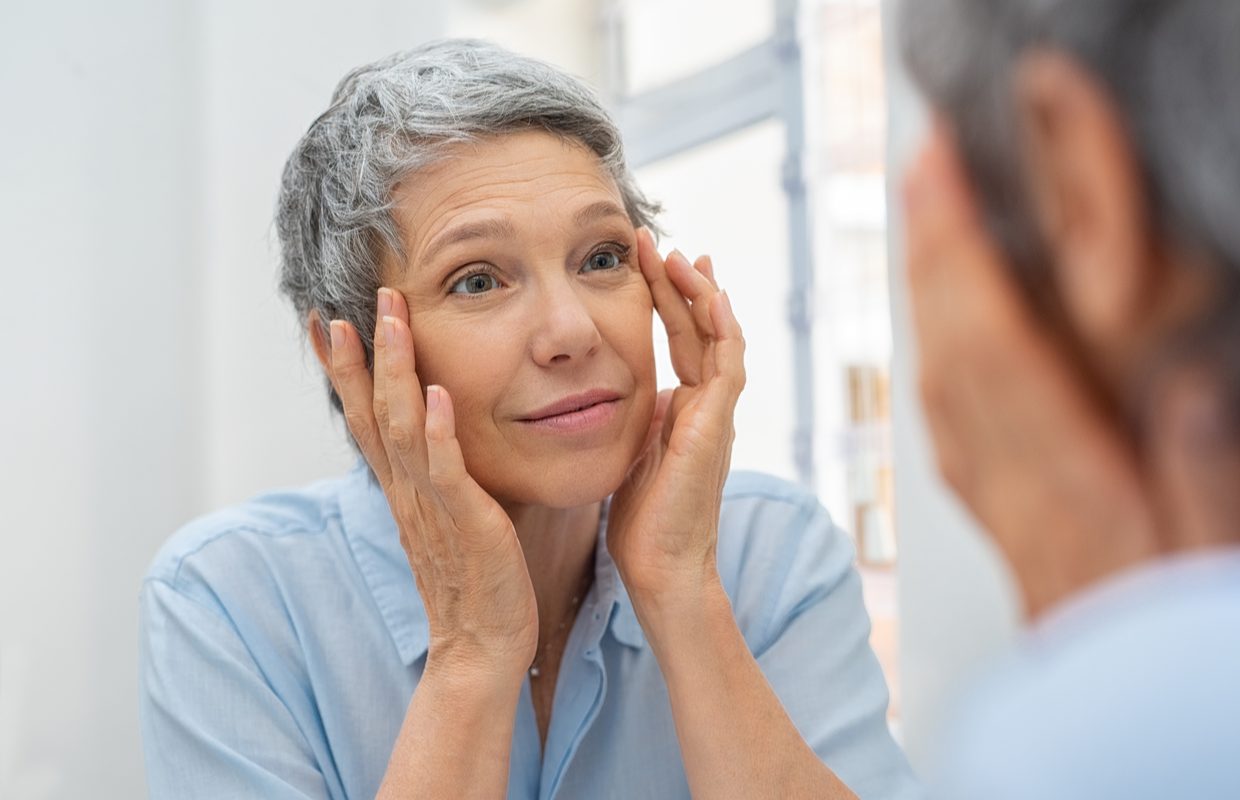
‘I’d like to try a more natural approach to combatting wrinkles, instead of using retinol and Botox. What do you recommend?’
‘There are a few natural things you can do in your everyday life to slow down ageing, such as protecting your skin from the sun, using SPF30 at least, ideally 50. Remember, windows can stop UVB but not UVA from getting through. If you smoke, stop and follow a generally healthy way of life. Stay hydrated, eat beta carotene-rich foods (red, orange and green vegetables), but avoid carotene supplements. Up your antioxidant intake to fight free radicals, so fill up on fruits, veg, green tea and curcumin.
‘When it comes to anti-ageing skincare, retinoids are the only cosmetics that have strong scientific evidence and the most effective ones usually come on prescription. If you don’t want to use retinol, then you can try antioxidants, which help fight free radicals and ageing. The gold standard is pure vitamin C, ideally applied every morning before your sunscreen.
‘There are other topical antioxidants, such as vitamin E, resveratrol and ferulic acid. Peptides and hyaluronic acid serums can help plump the skin. Natural things, such as coconut oil, olive oil and aloe vera will moisturise the skin. However, they won’t have any impact on ageing and wrinkles. – Dr Emma Gardette, dermatologist and skin cancer screening expert at The Medical Chambers in Kensington.
‘Are there any Ayurvedic herbs I can put on may face to even out my complexion and reduce redness?’
‘While you address matters of digestion on the inside, there are a multitude of plants and herbs with the power to further improve the look and condition of your skin on the outside. If you suffer with oily or congested skin, then products containing witch hazel and tea tree are very helpful. One that is less well known is the herb, neem. Neem has powerful antibacterial and anti-fungal properties that can help prevent and treat acne.
‘For skin that is red or inflamed, look for products containing sandalwood or try sandalwood oil. This is known to soothe irritated skin and rosacea, and calm any associated itching. If you have very dry skin, avoid using harsh toners or scrubs. Instead, opt for pure essential oils, especially blends that include rose, rosehip or jasmine oil. Rosehip oil, in particular, is rich in essential fatty acids that are easily absorbed by the skin.
‘Alongside using herbs and plants to treat your skin, ensure you drink plenty of warm water (in Ayurveda, we never advise drinking cold water) to continue to enable the flushing out of any toxins that have built up. In my book Balance Your Agni, I give a very simple recipe to make cumin seed water. Cumin seeds are not only an excellent digestive aid, they contain vitamin e and a host of other antioxidants, vitamins and minerals to help maintain clear, glowing skin.’ – Claire Paphitis, Ayurvedic practitioner and author of Balance Your Agni: Essential Ayurveda.

